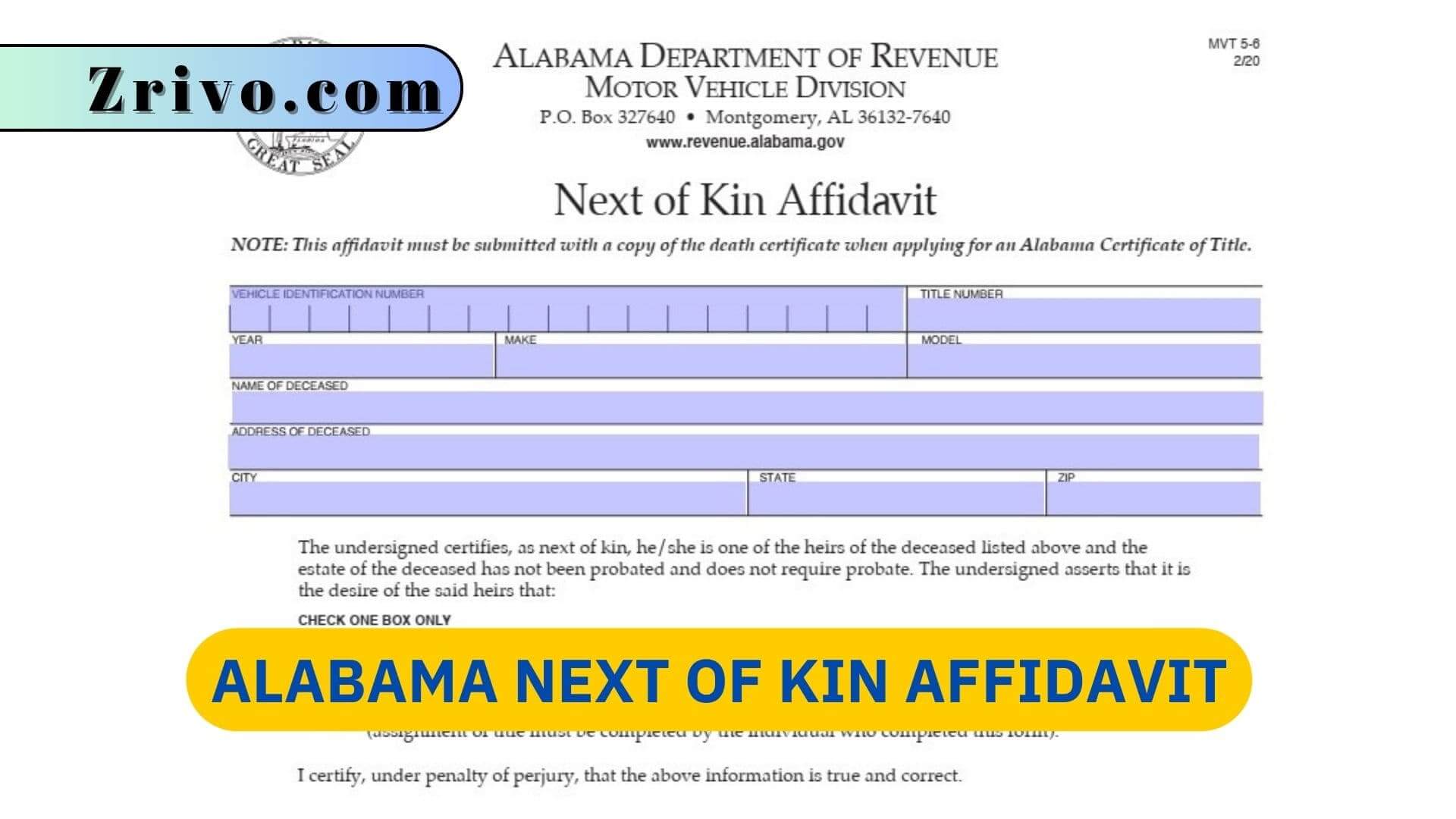Alabama Next of Kin Affidavit
A next of kin affidavit is required to assign the title for a vehicle when a deceased owner dies without a will.

Alabama’s Affidavit of Warship, Next of Kin, or Descent establishes the rightful heirs of an estate when someone dies without leaving a will. This document provides a clear path for distributing property and helps avoid disputes and confusion over who deserves what. It is typically filed during the probate process. The affiant must present to the Surrogate’s Court a death certificate of the deceased, a list of assets with their nature, location, and value, as well as the names, addresses, and ages (if minors) of the nearest next-of-kin. The affiant must also declare that they are eligible to inherit under state law.
In addition to filing the affidavit, executors and personal representatives in Alabama must complete other tasks during probate, including submitting an inventory of assets and separating non-probate assets from those that will need to go through the probate process. This can be a long, complicated process and is best handled with the help of a trusted Alabama probate attorney.
It’s important for personal representatives and executors to stay up-to-date on the rules and regulations of their State. It’s also a good idea to double-check form names and form IDs to make sure you are filling out the correct version of Form Alabama Next Of Kin Affidavit (N/A). Probate is already long enough, and making a mistake can delay the timeline and cause unnecessary stress for everyone involved.

How to Fill out the Next of Kin Affidavit in Alabama?
There are all kinds of forms executors, administrators, and beneficiaries have to fill out during the probate process. The exact forms required depend on a lot of things, such as the type and value of the estate’s assets, whether there was a will, who is serving as the personal representative or executor, and who the heirs are. There are also specific deadlines and timelines that must be met.
The affidavit must include the affiant’s full legal name, date of birth, and death date. It should also include a detailed list of the deceased’s assets, nature and value, and location. It should also be signed by the affiant and notarized. It’s important to note that if there are more than one next of kin, they must all consent to serve as co-affiants and sign the document.
It’s also important to note that lying about a deceased person’s death on an affidavit of death is illegal and can lead to criminal or civil penalties. It’s best to work with a trusted legal expert, such as Atticus or a local probate lawyer, to ensure you have all the correct forms and are following the proper steps to avoid any missteps. You should also be aware of any additional requirements, such as notary fees, that might apply in your State or situation.





